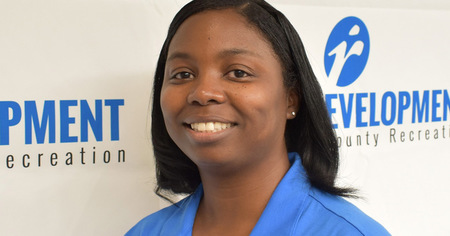A month ago, I worked with colleagues from other national organizations to write an issue brief about blending STEM and wellness as an efficient and effective equation for equity—and I learned so much.
Three weeks ago, I affirmed that even though I am not an expert in equity or inclusion, I would not let the fear of not understanding everything—or the possibility of looking stupid—get in the way of using my leadership for good.
Last week, I wrote an article titled "The Resources You Need to Promote Tolerance and Inclusion."
At the end of the article, I asked for input.
I got it.
A reader sent an e-mail: "Promoting tolerance is never a good idea. Tolerance is what got Trump in the White House."
My political views aside, the comment stung, but I thought there might be a learning moment—and I did ask for input, after all. So, I replied: "Thanks for your feedback. If you were writing the subject line and the article, how would you have positioned the resources? Also, any other resources you would recommend?"
The answer:
"8 Resources to Promote Inclusion"
"8 Resources to Create Inclusive Environments"
"8 Resources to Create Welcoming Spaces"
"Saying we promote tolerance is like saying 'Hey, come to our program, we will tolerate you.' No one wants to be tolerated. We want to be accepted for who we are. We want to be welcomed because we are part of the community. We want to be seen and heard and noticed for our differences. We do not want to be tolerated."
My response:
"I completely agree and at the same time am also trying to figure out how to meet people where they are and consider tolerance as the first step. You seem interested and knowledgeable about the topic. Maybe you'd be willing to be a sounding board for me around this topic?"
The e-mails continued. The person agreed to be a sounding board and provided more reasons why the word "tolerance" should not be used.
I listened. I reflected. I researched.
Informal research brought up a lot of food for thought, like this great article from the Girl Scouts, "Why Tolerance Isn't Working." I also found many definitions of tolerance, including the following from dictionary.com:
Tolerance noun tol·er·ance
1. a fair, objective, and permissive attitude toward those whose opinions, beliefs, practices, racial or ethnic origins, etc., differ from one's own; freedom from bigotry.
2. a fair, objective, and permissive attitude toward opinions, beliefs, and practices that differ from one's own.
3. interest in and concern for ideas, opinions, practices, etc., foreign to one's own; a liberal, undogmatic viewpoint.
4. the act or capacity of enduring; endurance.
I reflected again. In the article, "tolerance" was intended to be used in reference to the first three definitions, and the reader used the fourth.
Language matters. It's powerful.
Tolerance in the fourth definition could have a negative connotation and does seem contrary when talking about inclusion. Tolerance as defined in the first three ways is an important way of being that needs to be learned and employed by all. Used along with critical thinking and communication, it can be a starting point for conversations and counteracting bigotry:
big·ot·ry ˈbiɡətrē/ noun
1. intolerance toward those who hold different opinions from oneself.
This week, I learned something new. I don't know exactly how my language will change based on the feedback and reflection, but it has provided opportunity to listen, reflect and learn. It also reinforces that resources for the development of professionals and leaders are as important as ever and reminds me that: Language is powerful, and great leaders never stop learning.

Contributed by Heid Ham, NAA's VP of Programs and Strategy.
Connect with Heidi via email at heidi@naaweb.org or on twitter @ham_heidi.




